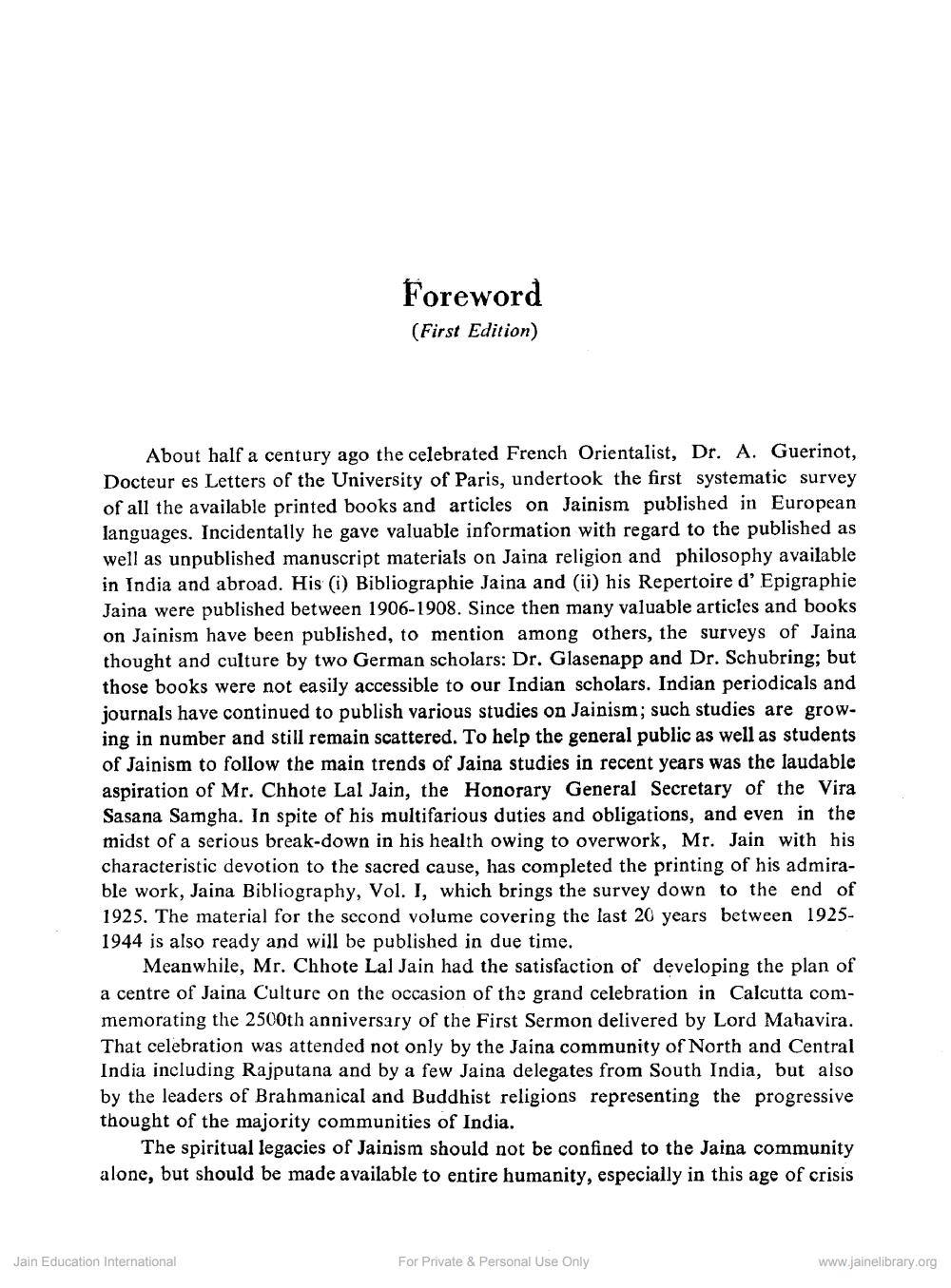________________
Foreword (First Edition)
About half a century ago the celebrated French Orientalist, Dr. A. Guerinot, Docteur es Letters of the University of Paris, undertook the first systematic survey of all the available printed books and articles on Jainism published in European languages. Incidentally he gave valuable information with regard to the published as well as unpublished manuscript materials on Jaina religion and philosophy available in India and abroad. His (i) Bibliographie Jaina and (ii) his Repertoire d' Epigraphie Jaina were published between 1906-1908. Since then many valuable articles and books on Jainism have been published, to mention among others, the surveys of Jaina thought and culture by two German scholars: Dr. Glasenapp and Dr. Schubring; but those books were not easily accessible to our Indian scholars. Indian periodicals and journals have continued to publish various studies on Jainism; such studies are growing in number and still remain scattered. To help the general public as well as students of Jainism to follow the main trends of Jaina studies in recent years was the laudable aspiration of Mr. Chhote Lal Jain, the Honorary General Secretary of the Vira Sasana Samgha. In spite of his multifarious duties and obligations, and even in the midst of a serious break-down in his health owing to overwork, Mr. Jain with his characteristic devotion to the sacred cause, has completed the printing of his admirable work, Jaina Bibliography, Vol. I, which brings the survey down to the end of 1925. The material for the second volume covering the last 20 years between 19251944 is also ready and will be published in due time.
Meanwhile, Mr. Chhote Lal Jain had the satisfaction of developing the plan of a centre of Jaina Culture on the occasion of the grand celebration in Calcutta commemorating the 2500th anniversary of the First Sermon delivered by Lord Mahavira. That celebration was attended not only by the Jaina community of North and Central India including Rajputana and by a few Jaina delegates from South India, but also by the leaders of Brahmanical and Buddhist religions representing the progressive thought of the majority communities of India.
The spiritual legacies of Jainism should not be confined to the Jaina community alone, but should be made available to entire humanity, especially in this age of crisis
Jain Education International
For Private & Personal Use Only
www.jainelibrary.org




